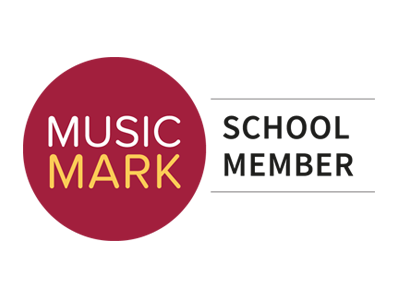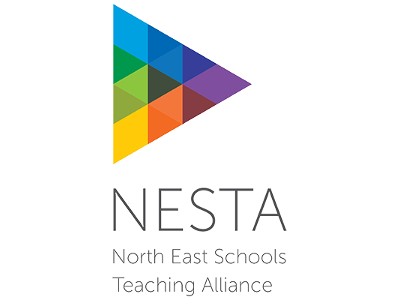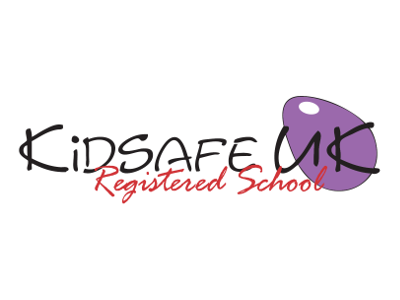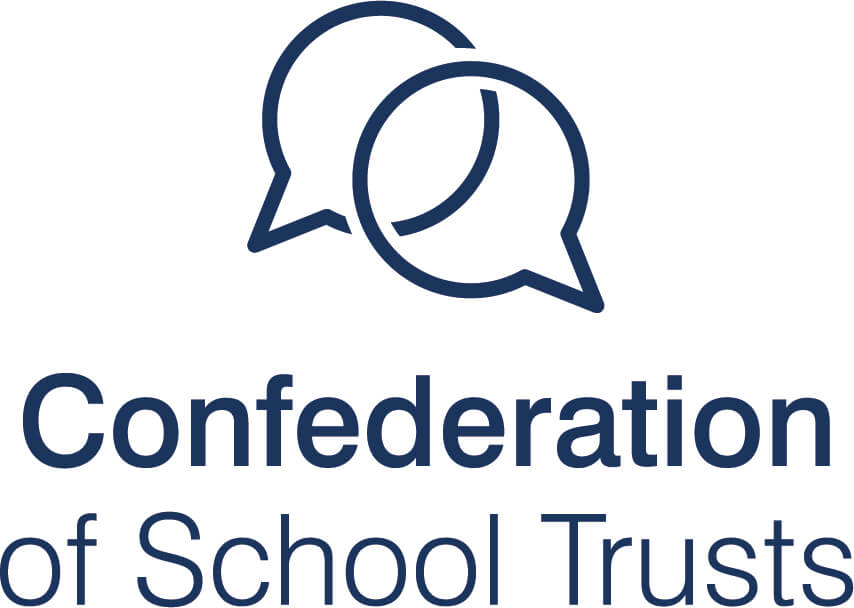Online Safety
Online Safety: A Guide for Parents
Welcome to Normanby Primary School’s Online Safety page for parents and carers! We believe that ensuring the safety and well-being of our students in the digital world is a shared responsibility between the school and parents. This page aims to provide you with valuable information and resources to help you navigate the online world and keep your children safe.
Introduction to Online Safety
The internet offers incredible opportunities for learning and communication, but it’s essential to be aware of the potential risks. Online safety involves protecting children from harmful content, cyberbullying, and online predators. By working together, we can create a safe digital environment for our children to explore and learn.
Guidelines for Safe Internet Use
- Discuss age-appropriate internet use with your child, considering their maturity and understanding.
- Set clear guidelines regarding screen time limits and which websites or apps are suitable for their age.
- Familiarise yourself with the age restrictions and content ratings of websites, games, and apps your child engages with.
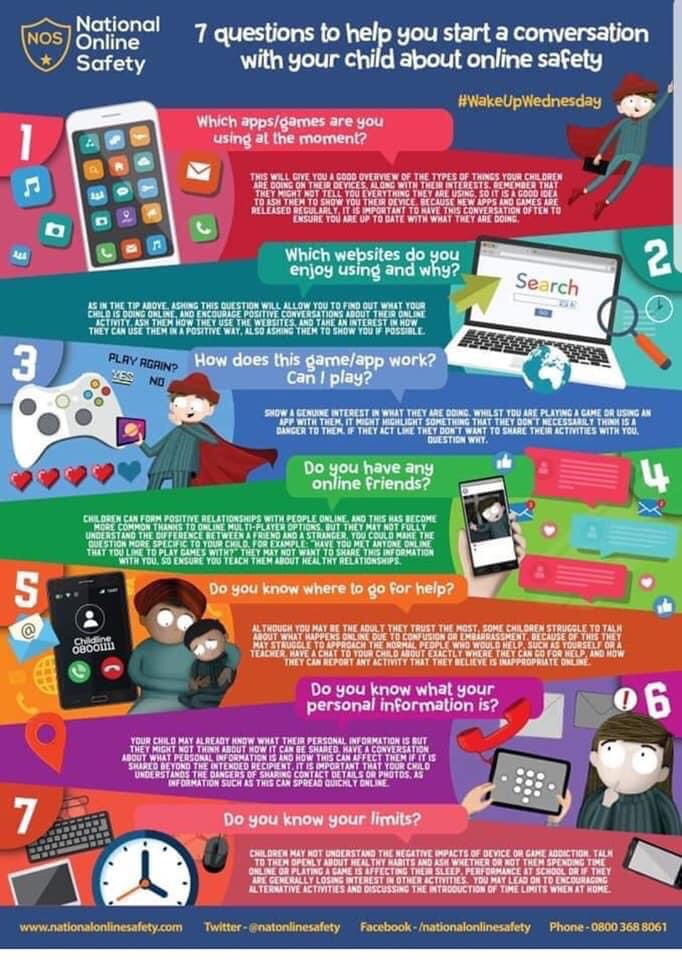
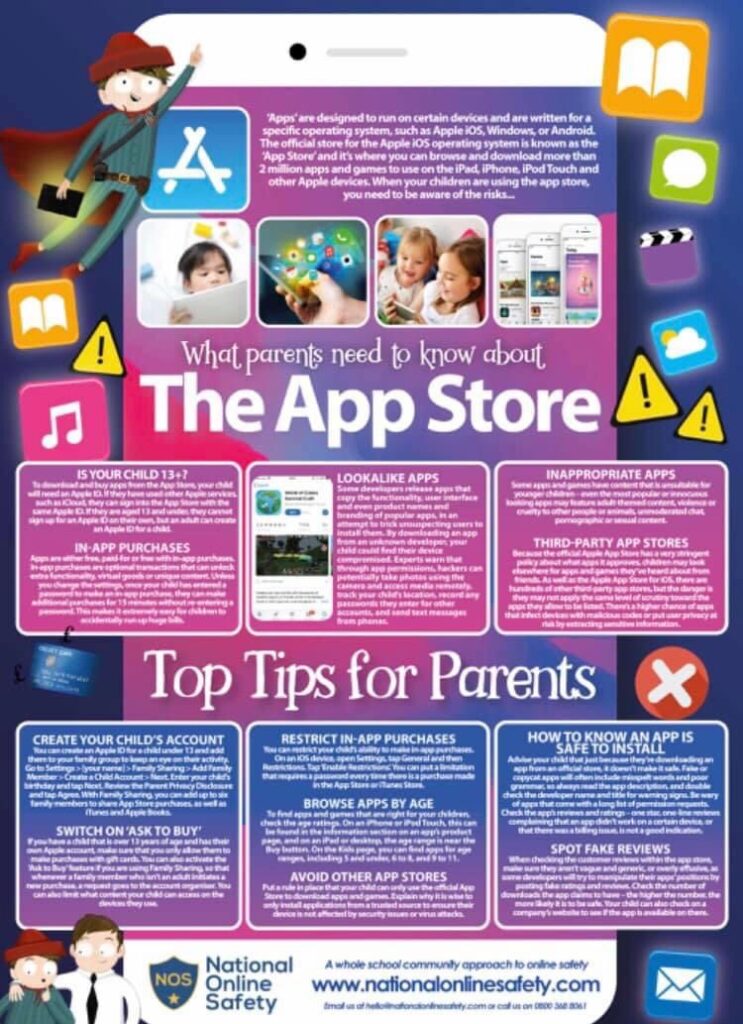
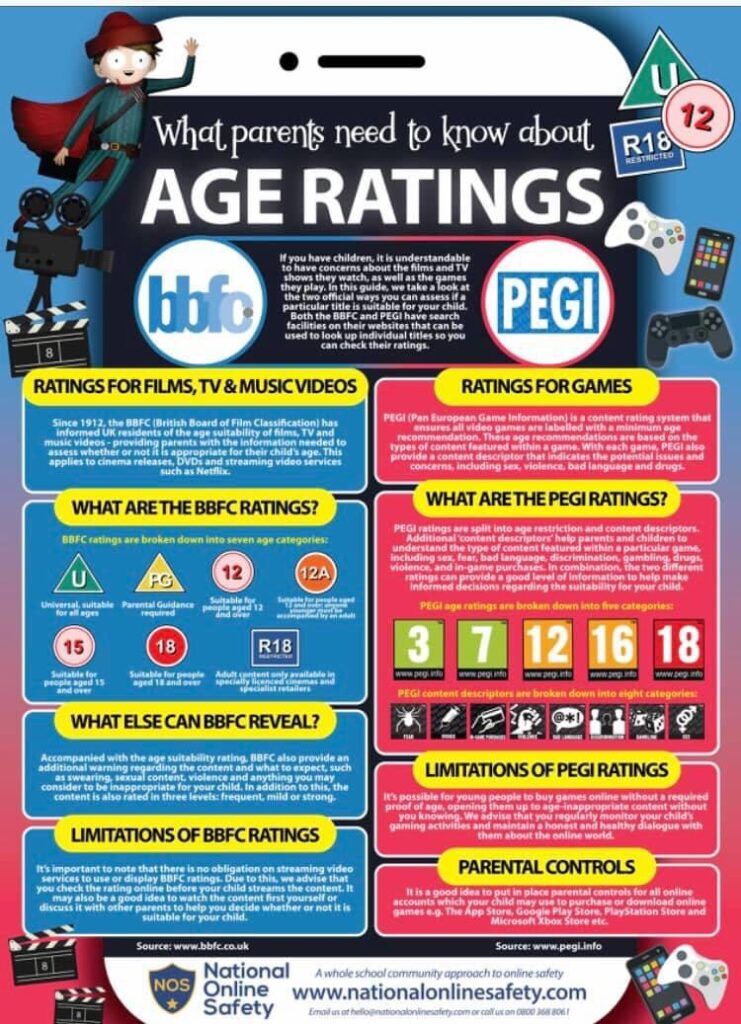
Establishing Open Communication
- Create an environment of trust and open communication, encouraging your child to talk about their online experiences.
- Listen attentively and avoid judgment when discussing their online activities or any concerns they may have.
- Assure your child that they can approach you with any issues or incidents they encounter online without fear of punishment.
Setting Parental Controls and Privacy Settings
- Learn how to utilise parental controls and privacy settings on devices, web browsers, and online platforms.
- These controls can help restrict access to inappropriate content, filter search results, and ensure your child’s privacy and online safety.
Cyberbullying and Online Harassment
- Educate yourself about cyberbullying and online harassment, including recognizing the signs and symptoms.
- Monitor your child’s online interactions and behaviour, and encourage them to report any incidents to you or a trusted adult.
- Teach your child strategies to respond to and report cyberbullying incidents.
Digital Citizenship
- Instil values of responsible digital citizenship in your child, emphasising the importance of kindness, respect, and empathy online.
- Teach them to think critically about online content, question sources, and consider the potential consequences of their online actions.
Click the poster below to view a larger version.
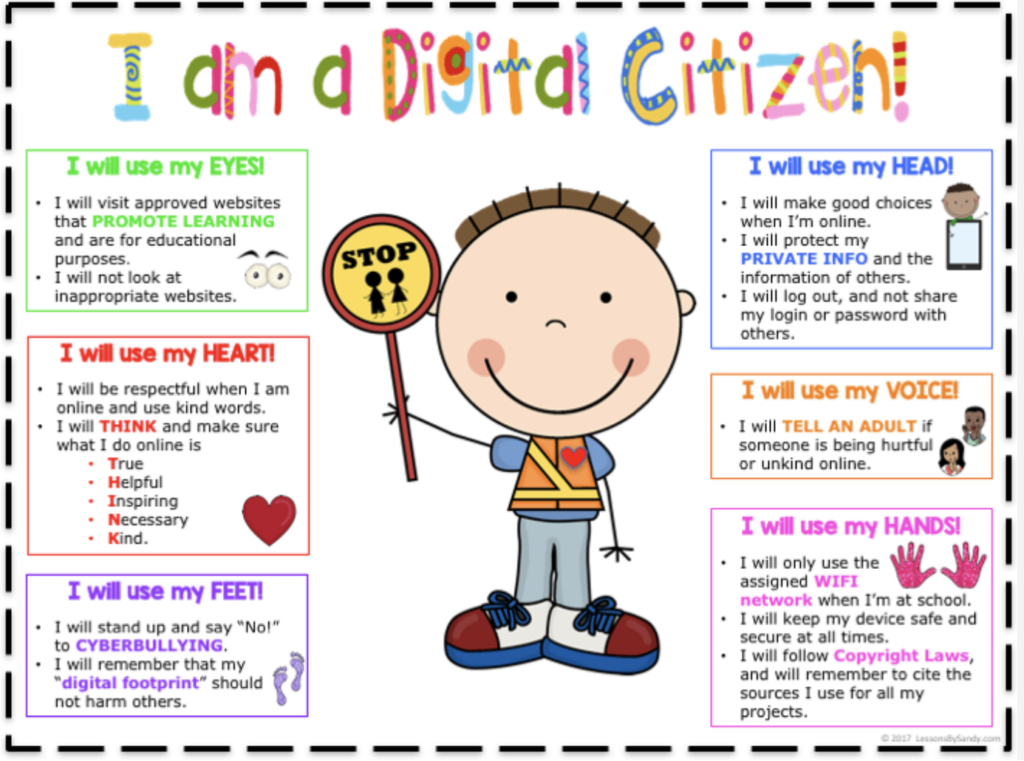
Online Content and Media Literacy
- Help your child develop critical thinking skills to evaluate and navigate online content.
- Recommend educational websites and resources that provide reliable and age-appropriate content.
Online Gaming and Social Media
- Guide your child on safe and responsible use of online gaming platforms and social media networks.
- Encourage them to maintain privacy settings, use strong and unique passwords, and be mindful of what they share online.
- Monitor their online activities, including friends, followers, and the content they engage with.
Reporting and Seeking Support
- Familiarise yourself with the reporting procedures within the school and relevant online platforms for incidents or concerns.
- Ensure your child knows they can come to you or a trusted adult for support and guidance.
- Be aware of where to find the helpline numbers and resources specialising in online safety and child protection.
- https://www.ceop.police.uk/safety-centre/
- https://www.thinkuknow.co.uk/
- https://www.nspcc.org.uk/keeping-children-safe/online-safety/talking-child-online-safety/
- https://www.internetmatters.org/advice/6-10/
Additional Resources
We understand that online safety is an ongoing journey, and we’re here to support you every step of the way. Here are some additional resources you may find helpful:
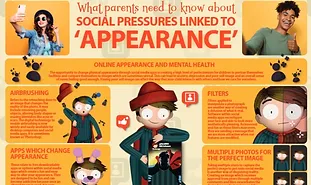
Social Pressures Linked to Appearance
Read about the pressure placed on young people regarding their online appearance on social media and the potential impact to mental health and wellbeing.
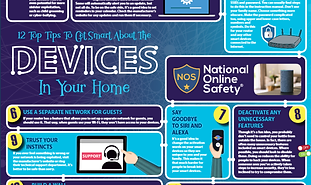
What you need to know about home devices
Many smart devices and functions can be ‘hacked’ and controlled by someone outside your home. This guide will help you identify some of the ways you can stay alert and protect yourself.

What you need to know about YouTube
YouTube has continued to grow in popularity over recent years, especially with the increase in trends like live gaming streaming and TikTok. Now, more than ever, it is vital that parents know what content their children are watching and the potential risks.
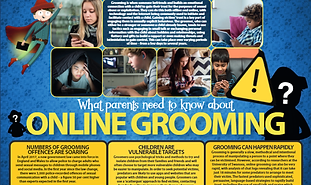
What parents need to know about online grooming
Grooming is when someone befriends and builds an emotional connection with a child to gain their trust for the purposes of sexual abuse or exploitation therefore it is vital for parents to inform themselves and be aware of the potential danger to their children.
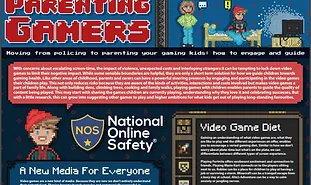
Policing vs Parenting – Get to grips with gaming
With the increasing popularity of gaming, it can be difficult to know how to approach this as parents. While some sensible boundaries are helpful, they are only a short term solution for how we guide children towards gaming health.
Remember, by working together and maintaining open communication, we can foster a safe and positive online environment for our children. If you have any concerns or questions, please don’t hesitate to reach out to us.




